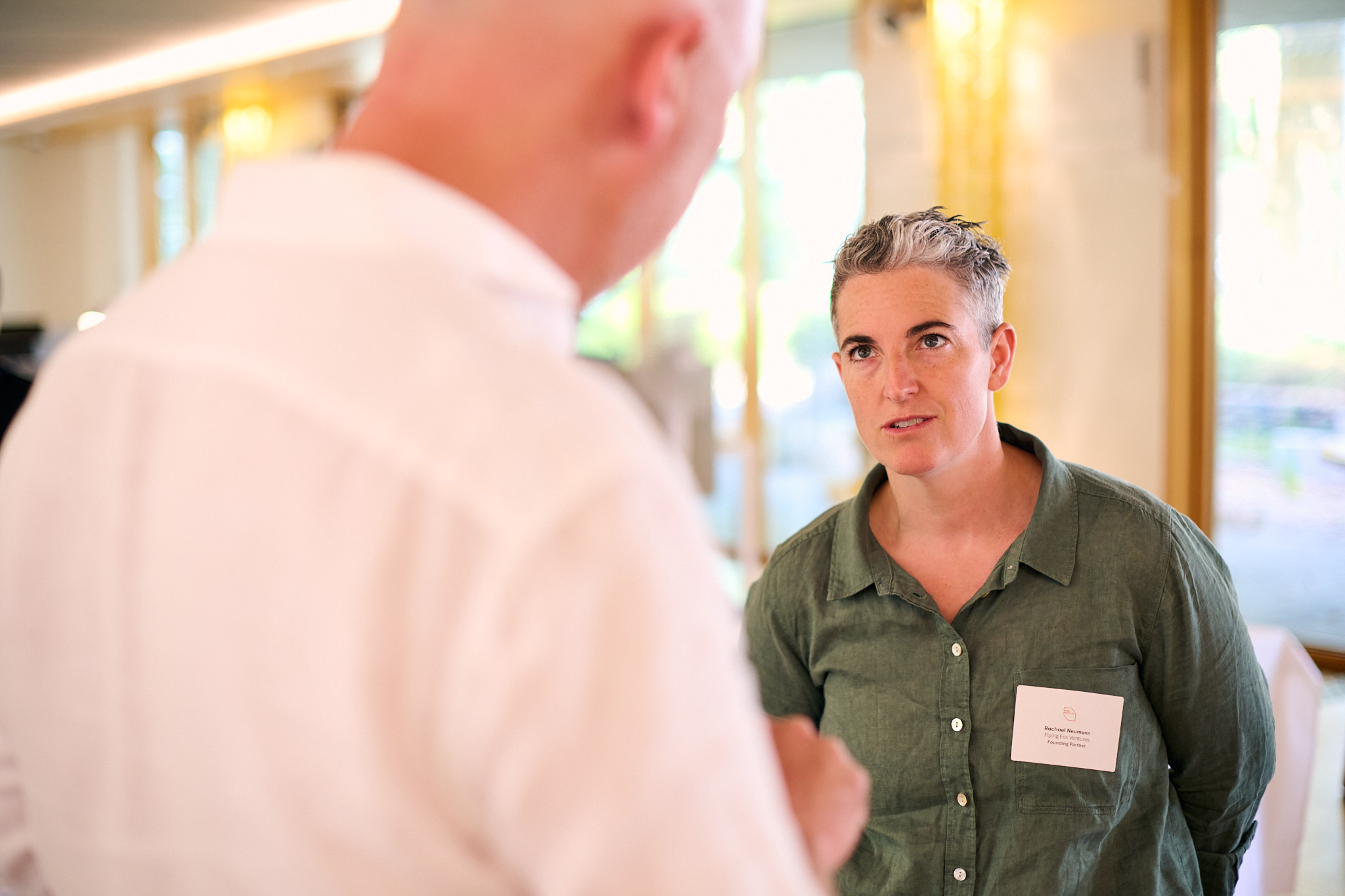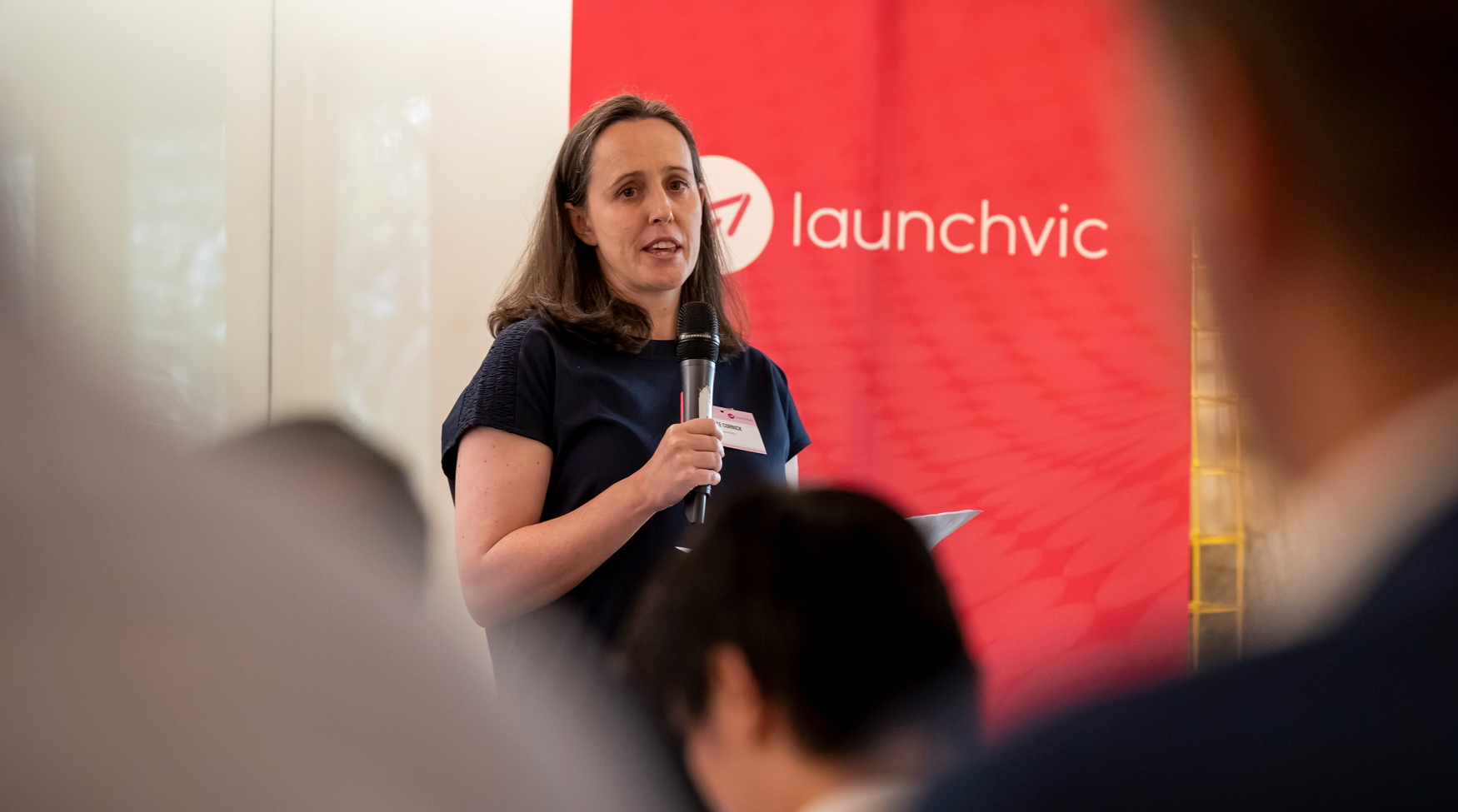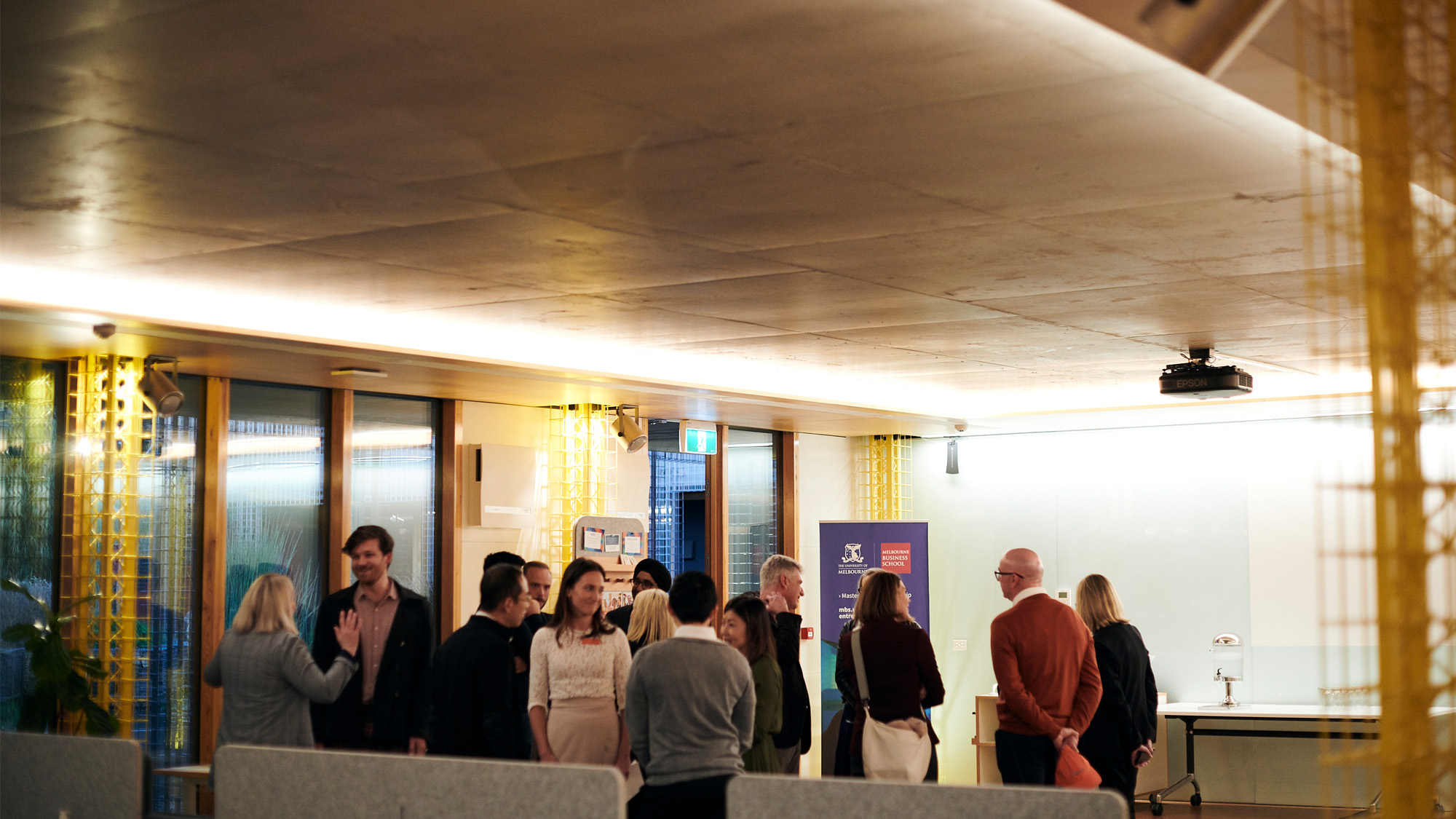Rachael Neumann is a Co-Founding Partner at Flying Fox Ventures, an early-stage investment firm supporting Australian and New Zealand founders with global ambition. And she believes that corporates need to step up and increase their risk tolerance in the ecosystem. Fast.
‘I don’t know of any other industry that reinvents itself every six to twelve months, but this is the one we find ourselves in.’
The corporate world has a responsibility to come to the table
The growth and evolution of startup ecosystems continuing towards maturity (and beyond) heavily rely upon exit events, and certain factors influence how that comes to be. Increases in the number of founders and startups, heightened investor presence, funds to deploy, angel investment networks activated, corporate world involvement, exit pathways, and ‘flywheel’ effects.
Rachael believes a lack of existing risk appetite in corporates looking at acquisitions has a real and material impact on maturing tech companies who want to continue to scale locally.
‘A lot of my companies and others I encounter who want to follow on past the Series A to Series B are still looking overseas.’
Rachael says, ‘corporates are not buying startups. There’s a lack of risk appetite to acquire those startups they need for talent, technology and new customer offerings. In the markets where there is more M&A…Investors get their returns, and that money gets recycled back in. Founders get exits – they go again. Early employees get exits and become angel investors or founders. You get this cycling of the ecosystem. We’re just not doing these full rotations currently, and we need participation from Australian corporates as acquirers of startups.’
Exits, let’s talk about them
Having previously occupied the Head of Startups in Australia & New Zealand role for Amazon Web Services, Rachael now shares her expertise with a wave of emerging investors in Australia via her role as Lead Program Facilitator for Wade Institute of Entrepreneurship’s VC Catalyst program.
Part of this role is to impart precisely to this new generation of investors what she is here to do as part of co-leading Flying Fox Ventures. That is, not just to invest in companies, but to invest in companies, exit them, and return investors their money many times over.
‘I think that investors and founders need to be having conversations much earlier to say, hey, we’re here with you for the long haul’, she explains. ‘We’re not trying to flog you off early. But what does an exit look like? Even if it’s in 10 years, how do we work backwards from there? And, weirdly, we don’t talk about that publicly.’
Storytelling at the investment committee
With over 50 companies in the Flying Fox investment portfolio, the internal decision-making process includes likely exits, at what timeframe and what the team need to believe for that to be valuable.
That starts with information and storytelling, shared and consumed over time, with the entire team having gone on the journey. Not a complete thesis being tabled at the investment committee.
‘When we (Rachael and Flying Fox Co-Founding Partner Kylie Frazer) get together to decide on the investment, if we are in violent agreement, we will have someone take the other side of that argument. Even if we are in disagreement, we will switch roles. The person who is a believer needs to talk about all the things that could go wrong. The sceptical person needs to get into the mindset of how big and good this thing could be. And with the totality of that information, we can make a decision.’
Indeed, Rachael’s focus, and what she’s looking for in a founder, is an ever-present ten-year view.
‘The actual product you’re going to build will change 100 times; don’t spend too much time selling me that product. I need to believe this is a deep underlying problem and that you will spend all your time on it for the next ten years because the problem is so big, and your need to obsess over it and solve it for the customer is so great.’
The stories founders should be telling
The North Star. That’s where Rachael’s attention turns next, as a means to emphasise the need for a significant, core problem for a founder to be attempting to solve and addressing some deep, human fundamental reasons why people do things, for example. ‘Some people say that the problem Canva is trying to solve is making design accessible to everyone. That Adobe was too hard. That’s actually not the problem they’re trying to solve.’
‘The problem Canva is trying to solve is everyone’s ability to communicate and tell stories. And they want to do it beautifully and easily, and Canva allows them to do that.’
The signal an investment thesis sends
As part of completing the VC Catalyst program, the final milestone is the compilation and presentation of the participants’ investment thesis to illustrate where their investment attention will be focused.
A thesis tells the world, ‘Hey, this is my billboard to the world, so companies who fit this thesis, come at me: I want to meet you. And those who don’t, with all due respect, let’s, you know…respect each other’s time and not meet.’
‘It sends that signal to the world so that you find the right deals, the right partners, and the right network to achieve your goals.’





